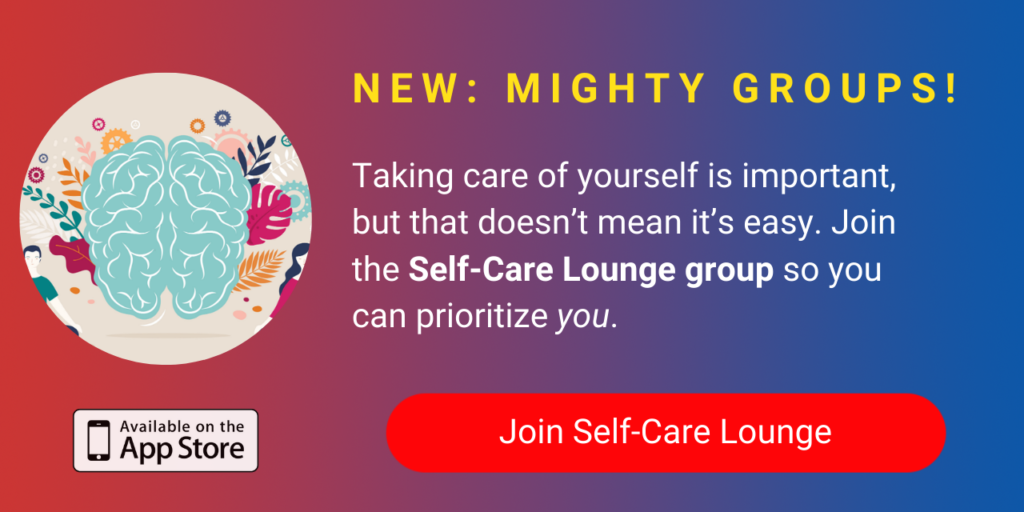Yes, yes you can.
It took me a really long time to accept this, but it’s true. You can have all kinds of happy memories from your childhood — you can recognize that you always had enough to eat, you can know that your family loved each other — and still experience childhood trauma. Let’s talk about how that’s possible.
My Classic Happy Childhood
I had a pretty happy childhood. I think when I talk about my invalidation and trauma, people assume I grew up in a loveless, cold household, but that wasn’t the case at all. My family is loud, boisterous, funny and affectionate in our own way. We didn’t look each other in the eye and say “I love you, you know that right?” But we shared inside jokes and had board game nights and snuggled together on the couch.
My mom worked nights as an OR nurse so she could be with us during the day, take us to the library and the pool and our grandparents’ houses during the summer and help us with homework during the school year. She made us a home-cooked meal almost every single night my entire childhood. My dad worked his way up from accountant to controller, taking on more hours than he probably wanted to help support four kids who were involved in sports and band and needed new clothes constantly because we all grew like weeds.
My siblings and I fought and yelled and made fun of each other, but we also played together all the time. I had built-in friends my entire childhood. We invented our own games and built forts when we were little, and as we got older, we talked about significant others and college and friend drama. I have so many memories with my siblings that highlight my childhood with streaks of happiness and togetherness.
I had a happy childhood. And I experienced childhood trauma.
Trauma Is Not Always Obvious While It’s Happening
If you’d asked me when I was 15 if I thought my childhood was traumatic, I would have laughed and said no. You would have gotten the same response at age 18 and 21. If you’d asked when I was 23, I still would have said no, but I would have hesitated. I wouldn’t have laughed. And now, at 26, I know the answer is yes, though I might still say no if you asked me in-person because I’m still not sure how to be honest about my experiences without my security blanket, the internet.

Because my childhood was so happy, I didn’t see how it could also be traumatic. I have issues with black-and-white thinking, where something is all one way, or all the other. Because I knew for a fact that my childhood was good, both objectively and in my own opinion, I thought it couldn’t also be traumatic. Which meant all the parts that weren’t so happy didn’t count. They must have been exaggerated by my dramatic nature, or I must be remembering them wrong, or they must be completely “normal” and I was weird for being upset by them.
Plus, the “little t” traumas of my childhood were a regular part of my daily life. If I had accepted the reality that they were truly traumatic while I was living it, I would have had a hard time getting through my day most of the time. It was much easier to assume I was the problem. To internalize what I could and deny what I couldn’t.
This is the definition of trauma: the failure to integrate a disturbing event into your internal narrative of reality. It doesn’t matter if 99% of that reality is happy and supportive. If that 1% is completely counter to what you know to be true and it splits off and takes on a life of its own, you’ve got trauma on your hands.
OK, but Literally Everyone Is Traumatized Then
Well, yes and no.
Yes, it’s true that when you understand the real, lived experience of trauma beyond military combat or sexual assault, an alarming number of people have experienced trauma and are living traumatized lives, often without knowing it. But if you read that blurb above and thought, “Well, of course that’s my experience, that’s everyone’s experience,” that’s a classic sign of childhood trauma.
It’s cliché, but many people who experience childhood trauma have parents with their own unresolved childhood trauma. And if they’ve made it to adulthood without resolving that trauma, they had to find a way to live with it. One of the most common ways of coping with trauma long-term is denial. They tell themselves it wasn’t that bad, or that others have it worse, or that life is just like that, and they can’t expect everything to be perfect all the time.
Then, they repeat the traumas they experienced with their own children, and when their children are upset, they teach them that denial. They tell their children that it’s not that bad, or others have it worse, or life is just like that and they can’t be perfect all the time, and the children grow up believing that this is normal.
It’s Not Normal
I’m here to say that growing up feeling inherently bad or thinking you’re responsible for everyone’s emotions or walking on eggshells around everyone in your life is not “normal.” You should not have been taught to ignore your internal signals that said “this isn’t right.”
You should not have been taught to ignore yourself.
And if you were, that “counts” as childhood trauma. You have every right to take that pain seriously and do your best to heal. You don’t need anyone else’s permission to heal, and even if you deserve one, you don’t need an apology or closure to move forward. You can create your own closure through reparenting, where you use your current position as an adult to provide for your inner child’s needs that were ignored or ridiculed in the past.
Finally, I want to say, you aren’t hurting anyone by accepting the reality of your trauma. You have a responsibility to your own well-being that comes before your responsibility to make others feel comfortable.
A version of this article was previously published on the author’s blog, Megan Writes Everything.
For more on how to recover from childhood trauma, see this article from our community.
Photo by Annie Spratt on Unsplash

